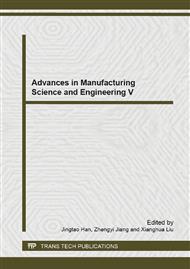p.2903
p.2907
p.2911
p.2915
p.2924
p.2935
p.2939
p.2944
p.2954
Experiencing Integrated Management in a Virtual Learning Environment
Abstract:
The evolution of knowledge related to Integrated Management (IM) is clearly discernible. The growing complexity of the subject can be seen by the incorporation of new concepts and their increasing interrelationship demanding changes in education specially the relationship between what is taught in Industrial Engineering and Business schools and what is applied in companies. Here we introduce the e-tangram simulator, which seeks to develop conceptual (strategic), technical (operations management) and human skills in business managers. It provides a virtual learning environment that allows experimentation in a company operating in a competitive environment. Once the simulation environment has been defined, students acting as managers can develop their ability to strategically manage a company, combining variables from the external environment and the functional areas of marketing, operations, human resources and finance. To determine the impact of the simulator on learning among undergraduate Industrial Engineering and Business students data were collected from 500 students and analyzed according to The Collective Subject Discourse methodology. The results showed that the activities carried out in the simulation environment were of great help in consolidating technical and conceptual learning among undergraduates; developing human skills, particularly those related to negotiations.
Info:
Periodical:
Pages:
2924-2934
Citation:
Online since:
June 2014
Price:
Сopyright:
© 2014 Trans Tech Publications Ltd. All Rights Reserved
Share:
Citation:


